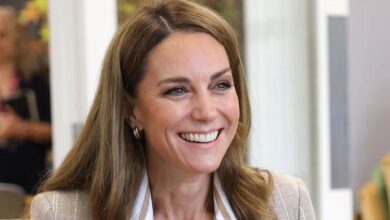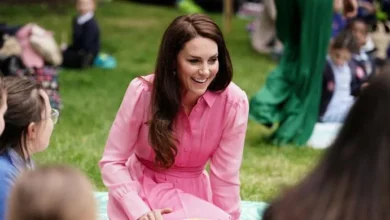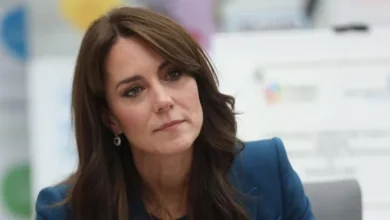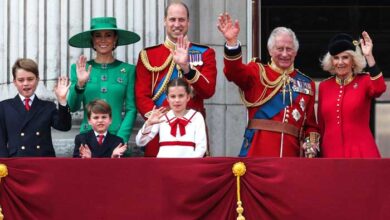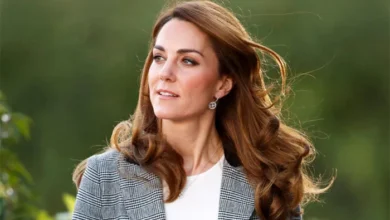Why Does Media Continues to Refer Princess Catherine as Kate Middleton
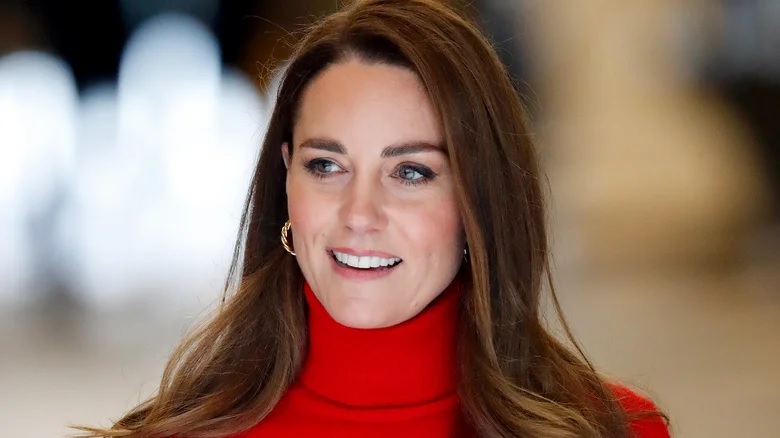
When Catherine, Princess of Wales, exchanged vows with Prince William in 2011, it seemed her “commoner” name was relegated to history.
However, over a decade later, the moniker “Kate Middleton” persists, especially across the Atlantic in the United States. Despite her preference for “Catherine,” the public and media often default to the familiar “Kate Middleton.” But why does this enduring identity persist?
According to Simon Perry, speaking to Vanity Fair, the multitude of titles within the royal family contributes to the confusion.
With myriad designations, including Princess William and Princess of Wales, the distinction between them blurs for the average person. Consequently, “Kate Middleton” remains a convenient shorthand.
Following Queen Elizabeth II’s passing in 2022, even reputable outlets like People faced the dilemma of nomenclature.
Despite the Princess’s preference for “Catherine,” the publication acknowledged the enduring popularity of “Kate Middleton” in search queries.
Hence, they opted to retain the familiar name in headlines to facilitate readers’ quick access to desired content.
But it’s not just practicality driving the persistence of “Kate Middleton.” As noted by Arianne Chernock, a British history professor at Boston University, there’s a palpable connection to the name.
Particularly in American media, “Kate” resonates more than “Catherine.” Chernock posits that this preference stems from the Princess middle-class roots, suggesting that the familiarity of “Kate Middleton” endears her to a broader audience.
Indeed, the enduring usage of “Kate Middleton” serves as a reminder of her relatable beginnings. Born Catherine Elizabeth Middleton in Berkshire, England, she was raised in a middle-class household before ascending to royalty.
Her journey from commoner to Princess captured global attention, and the name “Kate Middleton” became synonymous with grace, elegance, and modernity.
Moreover, the name “Kate Middleton” evokes a sense of accessibility. Unlike more formal titles, “Kate” feels approachable, inviting individuals to relate to the Princess on a personal level.
This perception aligns with her public persona, characterized by down-to-earth demeanor and involvement in charitable endeavors.
Read More: Roman Kemp Recounts Meeting Kate Middleton and Prince Harry at Buckingham Palace
However, the persistence of “Kate Middleton” also raises questions about identity and autonomy. Despite her status and preferences, the Princess finds herself tethered to a name that no longer fully represents her reality.
While she gracefully embraces her role, the dichotomy between personal identity and public perception remains a poignant reminder of the complexities of royal life.
In the end, whether she’s called Catherine, Kate Middleton, or simply Kate, the Princess of Wales continues to captivate hearts worldwide.
Her journey from “commoner” to royal exemplifies resilience, grace, and adaptability. And while the world may cling to the familiar, it’s her essence, not her name, that truly defines her legacy.
